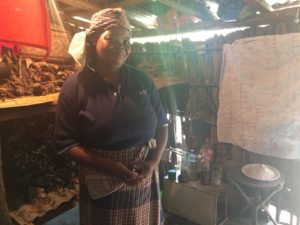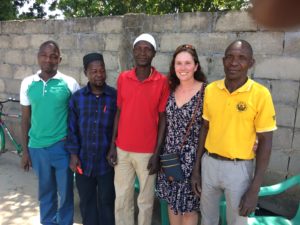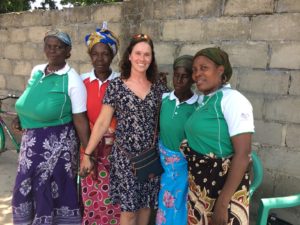Optimizing HIV care
Geospatial analysis for optimizing delivery of HIV care
Director: Carolyn Audet, School of Medicine
About
In rural Mozambique persons living with HIV (PLHIV) are trying and failing to manage their health. Only 60% of patients are retained in care one year after initiation of treatment. To stem high levels of loss to follow up, Ministry of Health policy mandates the use of “treatment partners” to support adherence for PLHIV on antiretroviral therapy. Many patients are hesitant to recruit someone in their “circle of trust” for fear of disclosure. Hence, they forego care.

Traditional healer, Mozambique
Traditional healers as caregivers
Research Goal: While patients are often uncomfortable disclosing their status to friends and family, they do trust traditional healers.


Professor Audet and traditional healers, Mozambique
Methods: With funding from a National Institute of Mental Health (MINH) K01 award, we are piloting an innovative solution with trained healers as treatment partners to support medication and appointment adherence for PLHIV. One hundred seventy patients have been linked with 43 healers across a 100 km2 rural district. We are interested working with VIIGR to use spatial analysis to assess the impact of location and distance on our interventions: what is the impact of the distance between the patient and health facility, patient and traditional healer, as well as healer and health facility on the frequency and duration of healer-based support, patient retention in care, and patient viral suppression? This project brings together public health, medicine, and community health and action students in data collection, analysis and write up. If trends are identified, we will apply for a larger NIMH R01 grant to test location-specific community health worker/traditional healer systems and improve health outcomes among people living with HIV.